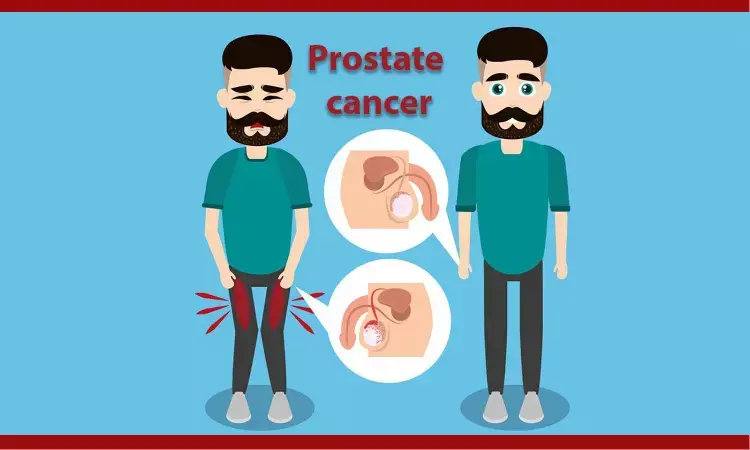- Home
- Medical news & Guidelines
- Anesthesiology
- Cardiology and CTVS
- Critical Care
- Dentistry
- Dermatology
- Diabetes and Endocrinology
- ENT
- Gastroenterology
- Medicine
- Nephrology
- Neurology
- Obstretics-Gynaecology
- Oncology
- Ophthalmology
- Orthopaedics
- Pediatrics-Neonatology
- Psychiatry
- Pulmonology
- Radiology
- Surgery
- Urology
- Laboratory Medicine
- Diet
- Nursing
- Paramedical
- Physiotherapy
- Health news
- Fact Check
- Bone Health Fact Check
- Brain Health Fact Check
- Cancer Related Fact Check
- Child Care Fact Check
- Dental and oral health fact check
- Diabetes and metabolic health fact check
- Diet and Nutrition Fact Check
- Eye and ENT Care Fact Check
- Fitness fact check
- Gut health fact check
- Heart health fact check
- Kidney health fact check
- Medical education fact check
- Men's health fact check
- Respiratory fact check
- Skin and hair care fact check
- Vaccine and Immunization fact check
- Women's health fact check
- AYUSH
- State News
- Andaman and Nicobar Islands
- Andhra Pradesh
- Arunachal Pradesh
- Assam
- Bihar
- Chandigarh
- Chattisgarh
- Dadra and Nagar Haveli
- Daman and Diu
- Delhi
- Goa
- Gujarat
- Haryana
- Himachal Pradesh
- Jammu & Kashmir
- Jharkhand
- Karnataka
- Kerala
- Ladakh
- Lakshadweep
- Madhya Pradesh
- Maharashtra
- Manipur
- Meghalaya
- Mizoram
- Nagaland
- Odisha
- Puducherry
- Punjab
- Rajasthan
- Sikkim
- Tamil Nadu
- Telangana
- Tripura
- Uttar Pradesh
- Uttrakhand
- West Bengal
- Medical Education
- Industry
Initial active treatment of localised prostate cancer tied to worse Qol in long run: BMJ

Localised prostate cancer has a five year relative survival rate of nearly 100% compared with the general population; survival rates at all stages are 98% and 96% at 10 and 15 years, respectively. Consequently, it has become increasingly important to consider quality of life outcomes associated with different treatments in treatment decision making.
Patients receiving initial active treatment for localised prostate cancer had generally worse long term self-reported quality of life than men without a diagnosis of prostate cancer, suggests the findings of a recent study . Men who had external beam radiation therapy/ high dose rate brachytherapy or androgen deprivation therapy as primary treatment reported more bowel problems, and this persisted in the group receiving androgen deprivation therapy, the study further reported.
The current study was aimed at 2 outcomes- firstly, to describe long term self-reported quality of life associated with the different common treatment approaches for men with localised prostate cancer in comparison with population based controls. Secondly, to determine the extent to which previously self-reported changes in continence, potency, bowel function, and overall wellbeing at three and 10 years of follow-up were still present and problematic at 15 years.
Researchers undertook the study to assess treatment related changes in quality of life up to 15 years after diagnosis of localised prostate cancer.
The study design consisted of a Population based, prospective cohort study with follow-up over 15 years. 1642 men with localised prostate cancer, aged less than 70, and 786 controls randomly recruited from the New South Wales electoral roll into the New South Wales Prostate Cancer Care and Outcomes Study (PCOS). Main outcome measures assessed were General health and disease specific quality of life were self-reported at seven time points over a 15 year period, using the 12-item Short Form Health Survey scale, University of California, Los Angeles prostate cancer index, and expanded prostate cancer index composite short form (EPIC-26).
Data analysis revealed the following facts.
- At 15 years, all treatment groups reported high levels of erectile dysfunction, depending on treatment (62.3% (active surveillance/watchful waiting, n=33/53) to 83.0% (non-nerve sparing radical prostatectomy, n=117/141)) compared with controls (42.7% (n=44/103)).
- Men who had external beam radiation therapy or high dose rate brachytherapy or androgen deprivation therapy as primary treatment reported more bowel problems.
- Self-reported urinary incontinence was particularly prevalent and persistent for men who underwent surgery, and an increase in urinary bother was reported in the group receiving androgen deprivation therapy from 10 to 15 years (year 10: adjusted mean difference −5.3, 95% confidence interval −10.8 to 0.2; year 15: −15.9; −25.1 to −6.7).
This study strengthens the evidence for informed decision making about the early management of localised prostate cancer.
"Patients receiving initial active treatment for localised prostate cancer had generally worse long term self-reported quality of life than men without a diagnosis of prostate cancer. Men treated with radical prostatectomy fared especially badly, particularly in relation to long term sexual outcomes. Clinicians and patients should consider these long term quality of life outcomes when making treatment decisions."concluded the team.
For full article follow the link:
doi: 10.1136/bmj.m3503.
Primary source:BMJ
Dr Satabdi Saha (BDS, MDS) is a practicing pediatric dentist with a keen interest in new medical researches and updates. She has completed her BDS from North Bengal Dental College ,Darjeeling. Then she went on to secure an ALL INDIA NEET PG rank and completed her MDS from the first dental college in the country – Dr R. Ahmed Dental College and Hospital. She is currently attached to The Marwari Relief Society Hospital as a consultant along with private practice of 2 years. She has published scientific papers in national and international journals. Her strong passion of sharing knowledge with the medical fraternity has motivated her to be a part of Medical Dialogues.
Dr Kamal Kant Kohli-MBBS, DTCD- a chest specialist with more than 30 years of practice and a flair for writing clinical articles, Dr Kamal Kant Kohli joined Medical Dialogues as a Chief Editor of Medical News. Besides writing articles, as an editor, he proofreads and verifies all the medical content published on Medical Dialogues including those coming from journals, studies,medical conferences,guidelines etc. Email: drkohli@medicaldialogues.in. Contact no. 011-43720751


